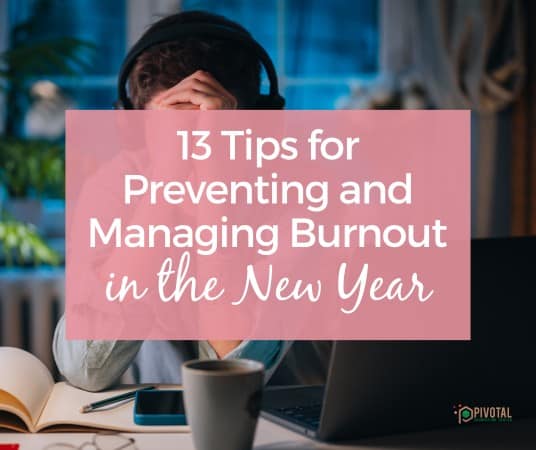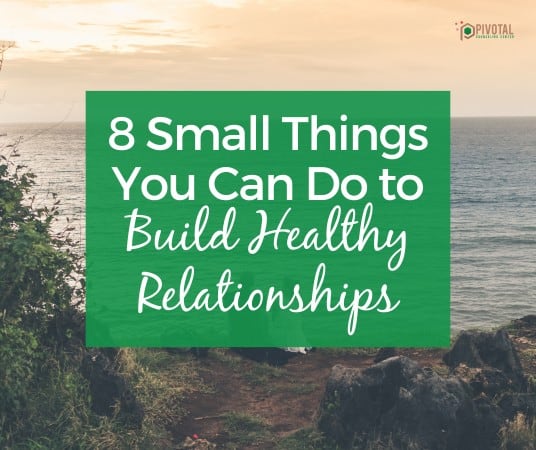
Communicating effectively is one of the most difficult skills we have to learn. Many of us grow up in homes where direct communication is unheard of, and in turn we internalize those communication habits, learning to hedge around what we want to say rather than say it directly.
But effective communication is one of the best tools to have in order to cultivate and maintain healthy and fulfilling relationships. Learning to communicate well helps you to reduce resentment and boost self confidence, as well as make it much easier for you to attain what you want–since you’ve actually asked for it.
However, we know that learning to communicate well is hard. So below, we’ve gathered our blogs on improving your communication skills. Here are seven blogs to help you become a better communicator:
How to Talk to Your Doctor About Mental Health
Your primary care physician (PCP) can be one of the best people to involve in your mental health care. When people think of mental health, they usually think about going and seeing a therapist. That is a great way to start, but as a therapist, I always recommend that my clients see their primary care physician too. Mental health symptoms can be related to certain medical conditions or can be a side effect of certain medications. Consider asking for a physical exam and bloodwork to make sure you do not have an underlying medical reason for your mental health symptoms. Some examples of underlying medical causes could be a thyroid disorder, sleep apnea or other sleep disorders, hormone imbalance, etc. While many of the treatments will still include therapy and possible medications, you must address the underlying medical component to get better.
Here are some tips for talking with doctors about your mental health >
How to talk to your kids about drugs
Talking with your children about drugs can be intimidating and confusing. Have you ever had thoughts like these?
- If I talk with them about drugs, will they become more curious about it and try them?
- I don’t know what I am talking about. Where do I begin?
- They will ask me if I have ever done drugs, then what do I do?
- How old do they have to be before I start talking to them?
- Their school talks about drugs, so do I really need to?
If this sounds like you, don’t worry. You are not alone!
Let me answer the questions above to help you understand how to talk to your children about drugs >
Healthy communication at work
In a workplace, problems about how everyone communicates can be one of the hardest things to get right to provide a safe and productive space for all involved. In order to make sure you always do your part in keeping the lines of communication open and positive, let’s take a look at the three kinds of communication:
- Passive
- Assertive
- Aggressive
You might have heard these terms before, but maybe you’re not really sure what they mean outside of their actual definitions.
So, let’s put each of these into an example situation so that it will all make sense >
Teen Relationships and Texting: What You Need to Know
No matter how much you might want to avoid it, there is going to be a day when your teen starts to date. Maybe they’ve swooned and crushed on cute classmates or friends before, but there will soon come that time when they will enter into a formal relationship. It’s going to be a hard day, that’s for sure, but it’s going to come. You just need to be prepared to take it all in, especially when it comes to the addictive world of texting.
How Texting Impacts Teen Relationships >
Things to Never Say to Your Partner
Every relationship has its ups and downs. They come from all sorts of causes–whether they’re within your relationship or stressors from outside. Keeping your relationship strong can help you weather through those difficult times. The key to a strong relationship is always to respect one another and to be kind even when you want to scream and shout and break it all down. We all make mistakes and do things wrong, especially in a relationship, but we can learn from others and try to make our own relationship stronger the more we learn.
So, here’s what not to say to your partner even in the heat of an argument >
3 Tips to Improve Your Communication Skills
Most of us are not actively taught to communicate effectively. We learn our communication styles as we grow from the adults around us. But what does that mean if the adults around us are ineffective or poor communicators?
Here are three tips to help improve how you communicate >
How to Ask For Help When You’re Struggling
Have you ever had a hard time asking for help? Asking for help of any kind can be hard, but asking for help with your mental health can be really scary. Mental health is deeply personal, and admitting that you’re struggling can bring up a lot of complicated feelings.
Some people struggle with asking for help more than others. We all know someone who prefers to do everything themselves. However, there are a few reasons that asking for help about your mental health is especially anxiety-provoking.
Why is asking for help so hard?>
Pivotal Counseling Center has therapists who work with individuals and have many different specialties. We have locations in Woodstock, Illinois, and Lake in the Hills, Illinois. If you are in need of someone to help, or want support as you learn skills to help you communicate better, please consider giving us a call at (815) 345-3400.
Pivotal Counseling Center is now accepting Medicaid including Blue Cross Community Medicaid, Meridian Medicaid, and Molina Medicaid for outpatient counseling.









